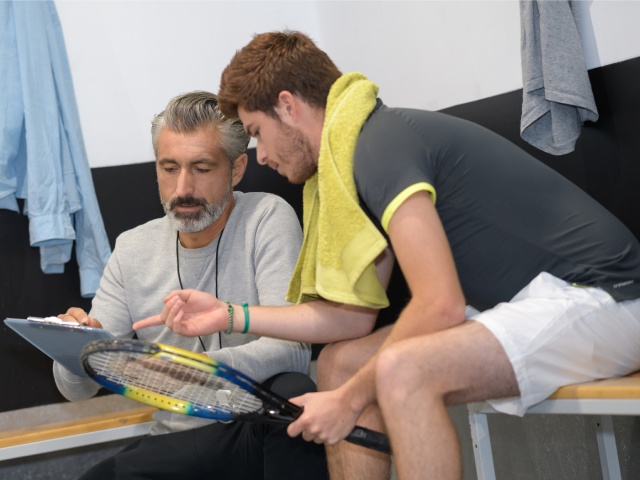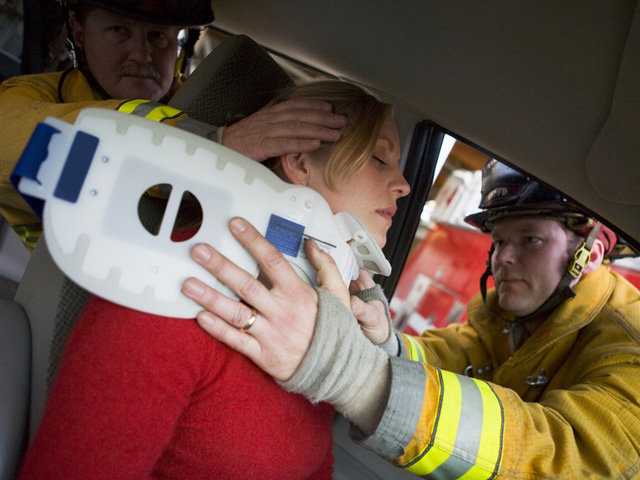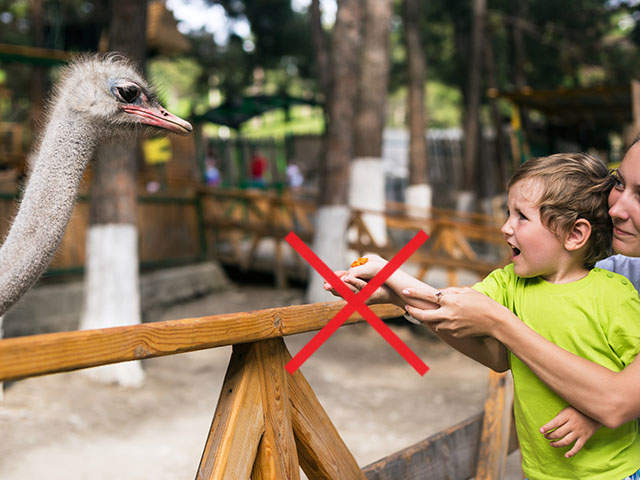He is said to do, it is said that he does... (B2)
Passive voice with reporting verbs (437)
Trpný rod se sdělovacími slovesy
Na Landigo si dnes ukážeme vazby v trpném rodě, pomocí kterých vyjadřujeme, co se říká, je obecně známo, ví se apod.
Trpné vazby – procvičování:
Alex is said to train extremely hard.
|
She is said to train hard.
|
| (= People say that she trains hard.) |


Trpné vazby používáme kromě slovesa SAY s dalšími sdělovacími slovesy (reporting verbs) KNOW, BELIEVE, EXPECT... a se SUPPOSE:








It is said/alleged/believed to... = Říká se/věří se/údajně…
Trpné vazby obvykle používáme, pokud nechceme nést zodpovědnost za to, co říkáme, co si myslíme, co předpokládáme apod.:
|
The movie is said to be boring. (= It's not necessarily my opinion – it's what people say.)
|
Trpné vazby se slovesy typu ALLEGE, REPORT, BELIEVE se často používají ve zprávách a reportážích:
|
Emily Johanson is alleged to be living in Spain at the moment. She is believed to have a boyfriend there.
|
This pub is said to be the best in the city.
|
This pub is said to be the best.
|
| (= People say that this pub is the best.) |


I've just heard on the news that the missing girl is believed to have on a yellow T-shirt and jean shorts.
| She is believed to have on... |
| (= People believe that she has on...) |


He is said to do... = It is said that he does...
Namísto trpné vazby s TO infinitivem můžeme použít velmi podobné – IT IS SAID THAT + vedlejší věta:
|
Chris is said to have a lover.
|
It is said that Chris has a lover.
|
|
Amanda is said to be a terrible cook.
|
It is said that Amanda is a terrible cook.
|
|
They are said not to be alive.
|
It is said that they aren't alive.
|
Robert is said to be a great father.
|
He is said to be great.
|
|
It is said that he is great.
|
| (= People says that he is great.) |


It is said that those foreigners cheat and steal.
|
It is said that they cheat.
|
|
They are said to cheat.
|


He is said to have done... = It is said that he did...
Pokud mluvíme o minulosti, použijeme – SOMEBODY/SOMETHING IS SAID TO + minulý infinitiv (have done, have played, have been...) nebo IT IS SAID THAT + vedlejší věta:
|
Amy is said to have played chess well.
|
O Amy se říká, že hrála dobře šachy. |
|
It is said that Amy played chess well.
|
|
|
Her father is said to have been in prison.
|
Říká se, že byl její otec ve vězení. |
|
It is said that her father was in prison.
|
Porovnejte:
|
She is said to play well.
|
Říká se o ní, že hraje dobře. |
|
She is said to have played well.
|
Říká se o ní, že hrála dobře. |
|
He is said to be in prison.
|
Říká se o něm, že je ve vězení. |
|
He is said to have been in prison.
|
Říká se o něm, že byl ve vězení. |
That American is said to have robbed a bank.
| Mluvíme o minulosti: |
|
He is said to have robbed a bank.
|
|
It is said that he robbed a bank.
|


Their family is said to have been travelling a lot.
| Mluvíme o minulosti: |
They are said to have been travelling.
|
| Mluvíme o přítomnosti: |
They are said to be travelling.
|


It is thought/believed/expected...= Lidé si myslí/věří se/očekává se...
Trpné vazby s běžnými sdělovacími slovesy:
| She is thought to be... | Lidé si myslí, že je... |
| It is thought that she is... | |
| She is believed to be... | Věří se, že je... |
| It is believed that she is... | |
| She is reported to be... | Podle zpráv je... |
| It is reported that she is... |
| She is known to be... | Je o ní známo, že je... |
| It is known that she is... | |
| She is expected to be... | Očekává se, že je... |
| It is expected that she is... | |
| She is alleged to be... | Údajně je... |
| It is alleged that she is... | |
| She is understood to be... | Má se za to, že je... |
| It is understood that she is... |
Nobody thinks we'll lose tomorrow. We are expected not to lose.
|
We're expected not to lose.
|
|
It is expected that we won't lose.
|


Mr. Williams is thought to have been murdered by his brother last year.
| Mluvíme o minulosti: |
|
He is thought to have been murdered.
|
|
It is thought that he was murdered.
|


Is the young actress believed to be guilty?
| Mluvíme o přítomnosti: |
Is she believed to be guilty?
|
| Mluvíme o minulosti: |
Is she believed to have done it?
|


A woman is reported to have been severely injured in the accident.
|
A woman is reported to have been injured.
|
|
It is reported that a woman has been injured.
|


We all know that Steward can bake. He is known to have great baking skills.
| Mluvíme o přítomnosti: |
He is known to have great skills.
|
| Mluvíme o minulosti: |
He is known to have had great skills.
|


Is supposed to = is said to
Někdy má SUPPOSED TO podobný význam jako SAID TO:
|
Dracula was supposed to be a great warrior. (= He was said to be...)
|
|
The pizza is supposed to be delicious here. (= It is said that it is..., People say it is...)
|
The Irish beer is supposed to be excellent. – Yes, that's what they say.
|
It is supposed to be excellent.
|
| (= It is said to be excellent.) |


Was supposed to = mělo se stát, ale nestalo se
SUPPOSED TO někdy používáme, když bylo něco naplánováno/domluveno/mělo se stát, ale často se nestalo:
|
You were supposed to help me. Why didn't you?
|
|
I was supposed to go to the supermarket but it was closed. (...so I didn't go there.)
|
The meeting was supposed to start at ten o'clock, but it was put off until eleven.
|
It was supposed to start at ten.
|
| (= It didn't start at ten.) |


You were supposed to pick me up an hour ago. Did you forget?
|
You were supposed to pick me up.
|
| (= You haven't picked me up.) |


Not supposed to = nemít dovoleno; nebýt vhodné
NOT SUPPOSED TO někdy znamená NOT ALLOWED/ADVISABLE TO:
|
What are you doing? You are not supposed to play on the laptop until your homework is done! (= You aren't allowed to play...)
|
|
I'm not supposed to eat chocolate, but I just can't help it. (= It is not advisable for me to eat...)
|
Don't you know you aren't supposed to feed the animals here?
|
You aren't supposed to feed them.
|
| (= You aren't allowed to feed them.) |


Porovnejte různé významy BE SUPPOSED TO:
|
The concert is supposed to be (= is said to be) amazing.
|
Předpokládá se, že ten koncert bude skvělý./Ten koncert má být skvělý. |
|
Where is Jake? He was supposed to be (= should have been) here by now.
|
Kde je Jake? Měl už tu být. |
|
You aren't supposed to be smoking (= aren't allowed to be smoking) at the bus stop.
|
Nesmíš kouřit na autobusové zastávce. |
Doporučujeme si procvičit trpné vazby se sdělovací slovesy (passive with reporting verbs) v našich cvičeních.
